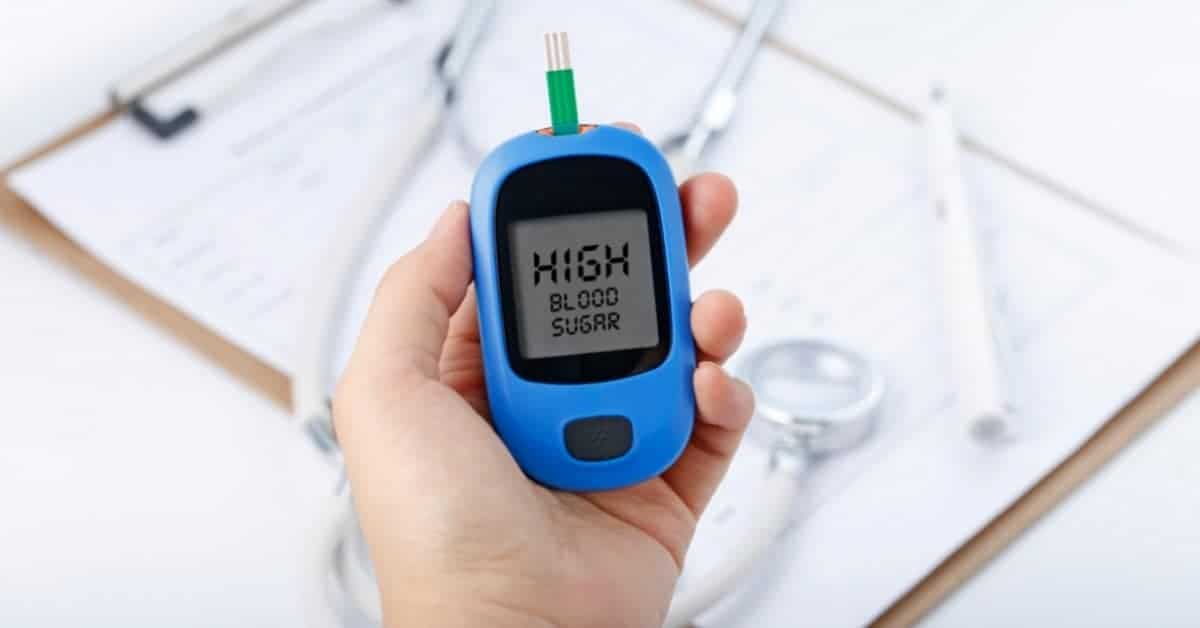Many people can have high blood sugar. It is important to determine what is the cause of this increase and, in addition, to take measures to combat it.
An elevated blood sugar reading first thing in the morning can be synonymous with a chronic health problem.
What is the normal level of sugar in the blood before eating?
The ideal level of sugar in the blood may be different for each person. However, the normal range for blood sugar in the morning before eating is between 80 to 120 mmg / dl. This is what is known as fasting blood sugar.
What Causes High Blood Sugar in the Morning?
If you have type 1 diabetes or type 2 diabetes, there are several reasons why you have high blood sugar in the morning. Next, we will explore some of these causes or the most common scenarios that are raising your blood sugar.
1. The Somogyi effect
It is a rebound response that occurs when the body begins to overcompensate for the nightly low blood sugar reaction.
It is very common in people who are taking diabetes medications such as blood-sugar-lowering medications. For example, taking a dose of insulin overnight. This can cause the Somogyi effect in diabetes.
What happens is that these drugs lower blood sugar while you sleep causing a hypoglycemic reaction (or low blood sugar levels). You do not feel the symptoms since you are asleep, however, your body detects the unusual reaction and begins to release stress hormones such as cortisol and adrenaline. The result is a series of reactions that raise blood sugar in the morning as a compensatory mechanism.
Some people with this reaction may be awakened at night with symptoms of hypoglycemia such as a headache and excessive sweating at night. When this occurs, it is also possible to experience problems waking up in the morning.
2. The phenomenon of dawn
This peculiar phenomenon occurs at night and is basically our natural alarm clock. This phenomenon is triggered between 3 a.m. around 8 a.m. m.
What occurs is the natural increase in the production and release of glucose from the liver. This is due to the increase in hormones known as cortisol and adrenaline and also increases growth hormone.
This phenomenon occurs to make our body wake up and have the energy to move during the morning.
All people experience this same mechanism naturally. However, it is possible that in people who have diabetes their body has some problems adapting well to this phenomenon. As a result, blood sugar levels may be higher than normal in the first hour.
For this reason, testing for high blood sugar levels in the morning helps diagnose people who have type 2 diabetes.
3. Low insulin level
Insulin is the hormone responsible for making the body use blood sugar. Without this hormone, blood sugar levels rise higher and higher.
Therefore, if insulin levels start to drop, it will be more difficult for the body to use sugar. As a result, the level of sugar in the blood will increase.
How do you know if the Somogyi effect or the dawn phenomenon is responsible for high blood sugar in the morning?
You will need a glucometer, which is the device with which you measure the sugar in your capillary blood with just a small prick. You will need to monitor and record your sugar levels between 2 a.m. until 3 a.m. for a few consecutive nights.
Interpreting the results:
- If the blood level is normal in this period, it is likely due to the dawn phenomenon.
- If the sugar level remains consistently low during this time, the Somogyi effect is likely the cause.
Is it normal for my blood sugar to be high in the morning?
Depends. When you go without food for many hours, for example, skipping dinner and waking up late in the morning, the body’s compensatory mechanisms are activated.
When you fast, insulin levels tend to drop. This causes a series of counterregulatory hormones such as norepinephrine and growth hormone to be increased.
The objective of this hormonal increase is to extract part of the sugar that is stored in the liver. As a result, after many hours of fasting, it is normal for your blood sugar to rise.
However, if you are eating as usual and your blood sugar levels are very high first thing in the morning, get a health checkup.
How to lower high blood sugar in the morning?
The first thing you should do is go to your doctor and together investigate the possible causes. Once you and your doctor determine the behavior of your blood sugar, your doctor will guide you towards the best treatment for you.
Some recommendations:
For the sunrise phenomenon:
- Eat a lighter breakfast.
- Your doctor may increase your morning dose of medication to lower your sugar.
- Use a programmed insulin pump to deliver an extra amount in the morning. Your doctor must authorize these changes.
- It may be necessary to change your diabetes medicine or the timing of its administration.
For the Somogyi effect:
- Reduce the dose of diabetes medicine that may be causing significant drops in sugar overnight.
- Exercise at night.
- Include a late-night snack before going to sleep. Include carbohydrates.
- Switch to the insulin pump and program it to deliver an extra amount of insulin at night. Check with your doctor first.
Conclusion
There are many possible causes why your blood sugar can rise. However, it is important not to delay seeking medical attention when you suspect something is wrong. Keep an eye out for new symptoms that may appear and record all your blood sugar measurements for consultation with your doctor.
References
- O’Neal TB, Luther EE. Dawn Phenomenon. [Updated 2020 Sep 5]. In: StatPearls [Internet]. Treasure Island (FL): StatPearls Publishing; 2021 Jan-. Available from: https://www.ncbi.nlm.nih.gov/books/NBK430893/
- DiPietro, L., Gribok, A., Stevens, M. S., Hamm, L. F., & Rumpler, W. (2013). Three 15-min bouts of moderate postmeal walking significantly improves 24-h glycemic control in older people at risk for impaired glucose tolerance. Diabetes care, 36(10), 3262–3268. https://care.diabetesjournals.org/content/36/10/3262
- Stothard, E. R., Ritchie, H. K., Birks, B. R., Eckel, R. H., Higgins, J., Melanson, E. L., Wright, K. P., Jr, & McHill, A. W. (2020). Early Morning Food Intake as a Risk Factor for Metabolic Dysregulation. Nutrients, 12(3), 756. https://www.mdpi.com/2072-6643/12/3/756
See Also
The truth about fasting
How long does it take to digest food









